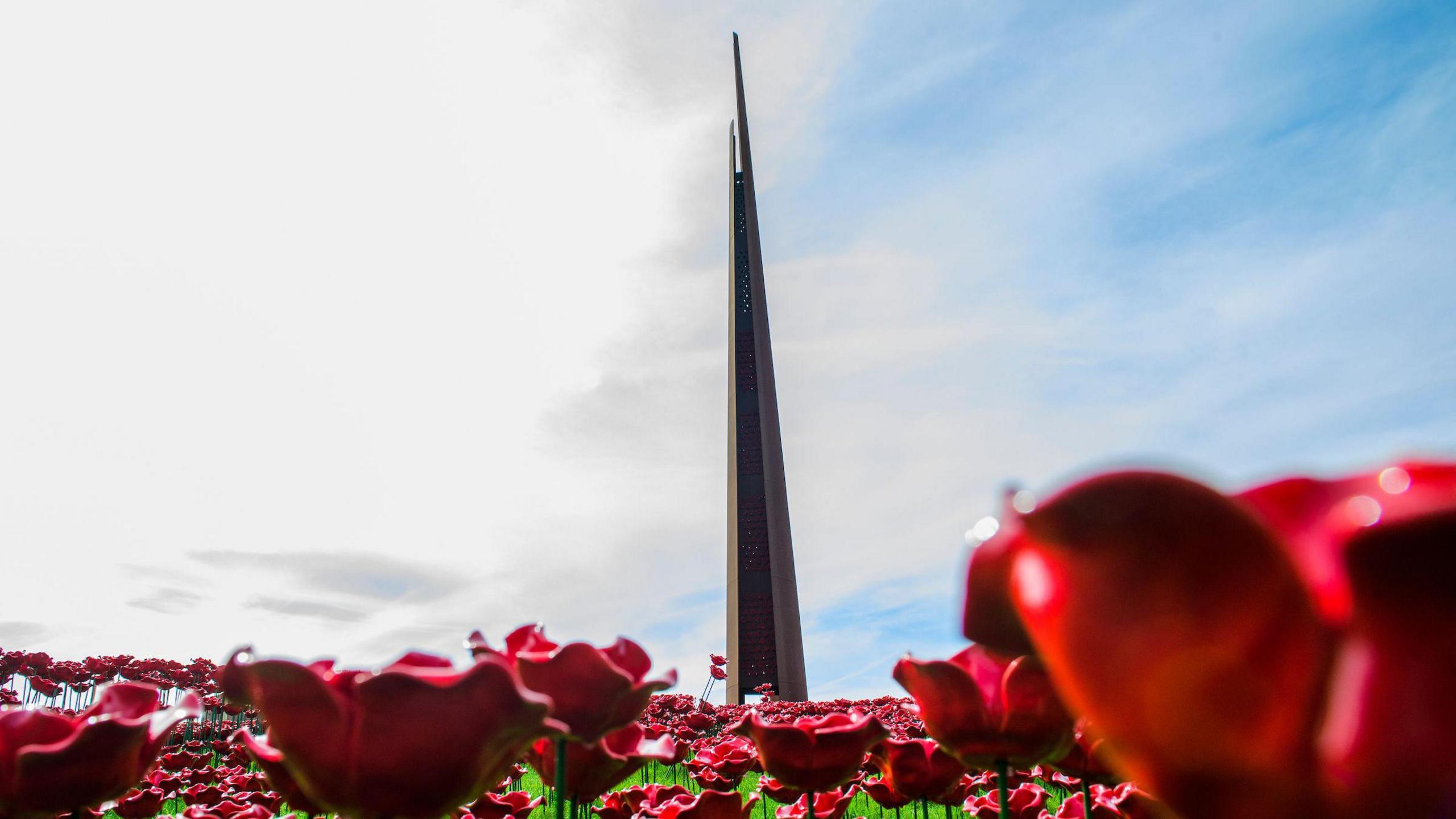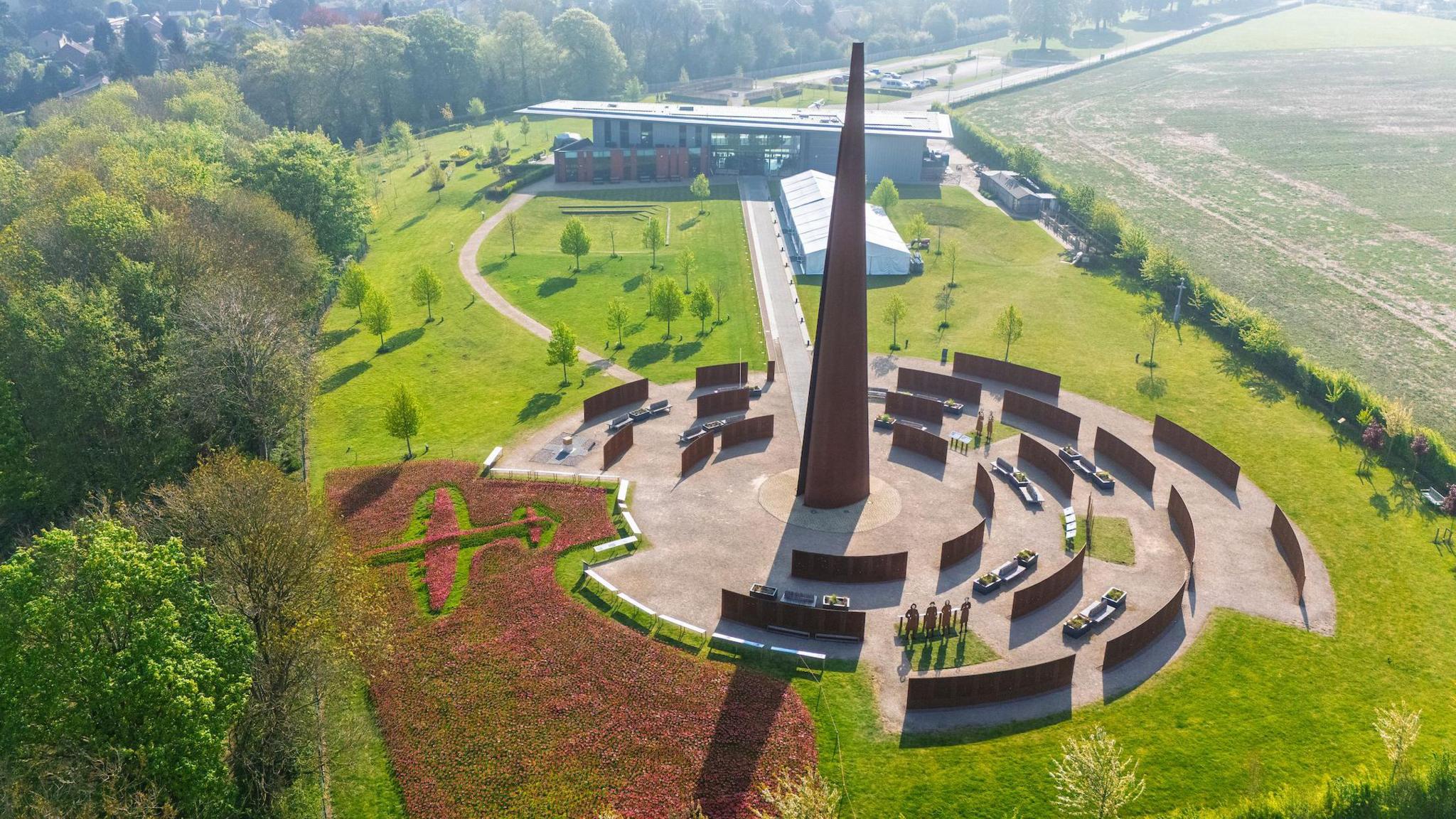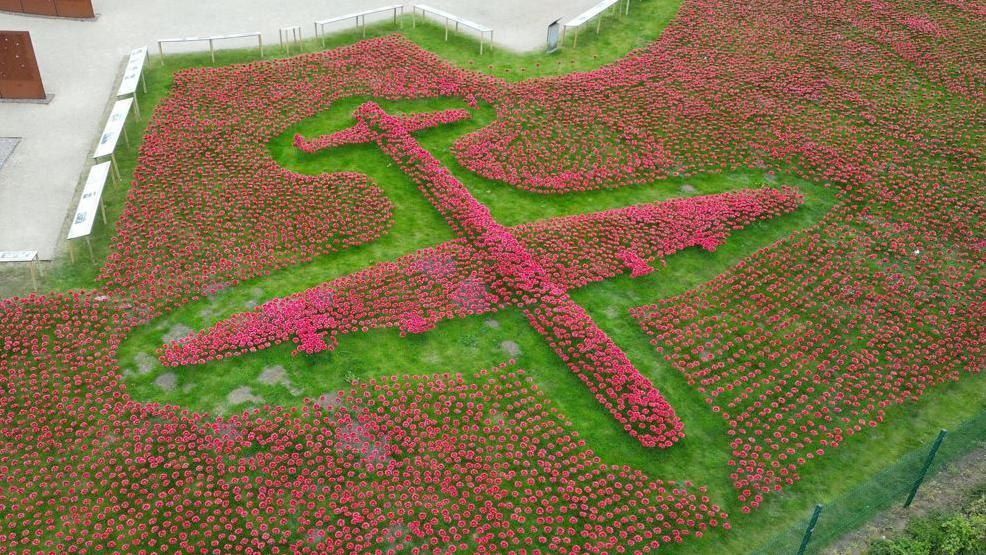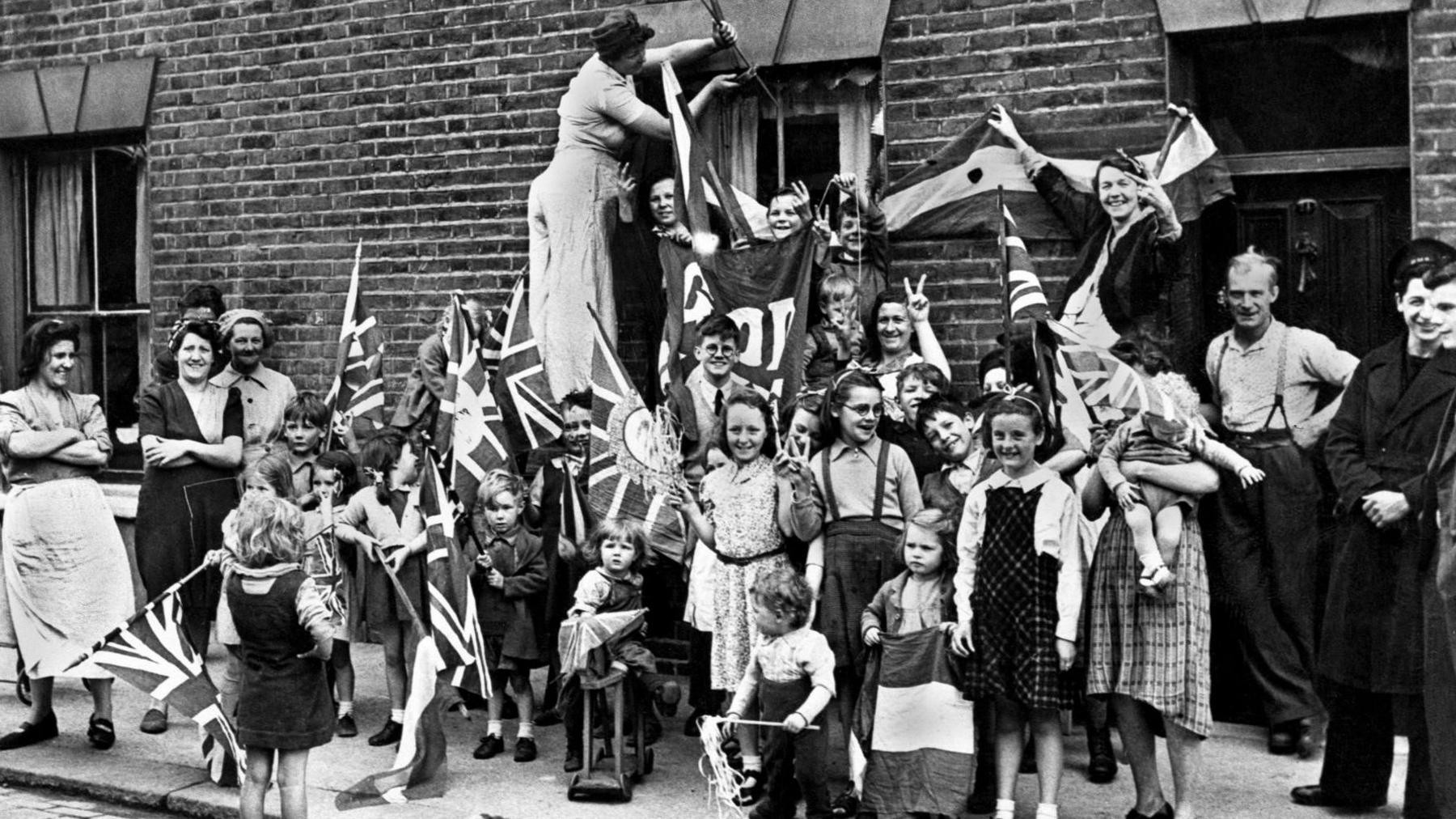Research to begin into WW2 RAF losses in far east

To fund the research, the International Bomber Command Centre is selling thousands of ceramic poppies
- Published
Research is to take place into losses sustained by RAF bomber crews in the far east during World War Two.
The International Bomber Command Centre (IBCC) said, while Bomber Command did not serve in the region during the war, its aircraft and crews were assigned to a new unit called Tiger Force to provide long-range bombing support in the Allied advance against Japan.
The force was never deployed, as the United States dropped atomic bombs on Hiroshima and Nagasaki, and Japan surrendered in 1945.
To fund the research, the centre in Lincoln is selling thousands of ceramic poppies arranged in the shape of a Lancaster Bomber to mark Victory in Europe (VE) Day and VJ Day this year.

Nicky van der Drift says people are "enormously proud" when they find an ancestor who served
Nicky van der Drift, chief executive of the IBCC, said: "Once the research on the far eastern theatre is complete, our Losses Database will have honoured and recorded every life lost in any of the Second World War bombing commands, including the Mediterranean theatre, 2 TAF and Command.
"The database will provide an additional resource, not only for military historians and visitors to our site, but also for family history websites."

The IBCC hopes to raise money to build further memorial walls
Ms van der Drift said the centre hoped to raise the funds needed to build further memorial walls, which would take the numbers commemorated from 50,000 to more than 80,000.
The poppy installation was created by Lithuanian artist Darius Sirmulevicius, who now lives in Lincolnshire.
Proceeds from the sale of the poppies will go to the IBCC, Wooden Spoon children's rugby charity, British West India Regiments Heritage Trust and the RAF Benevolent Fund.
Ms van der Drift said: "Buying a commemorative ceramic poppy is one way in which people can support our mission and make sure these brave men and women are remembered and honoured."
Listen to highlights from Lincolnshire on BBC Sounds, watch the latest episode of Look North or tell us about a story you think we should be covering here, external.
Download the BBC News app from the App Store, external for iPhone and iPad or Google Play, external for Android devices
Related topics
- Published25 April

- Published7 May

- Published25 April
